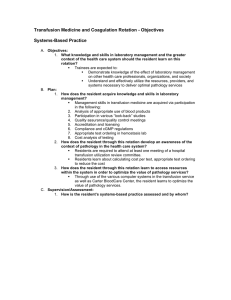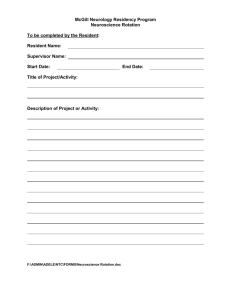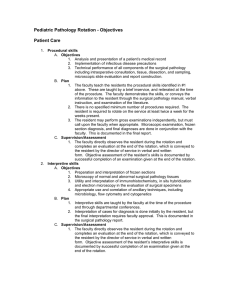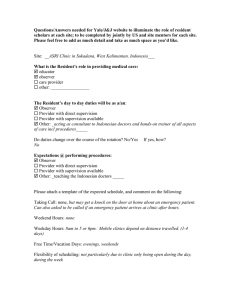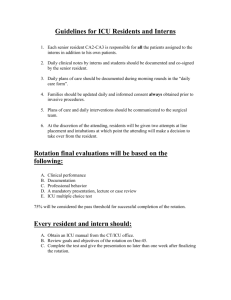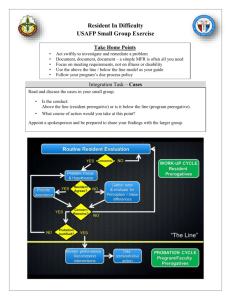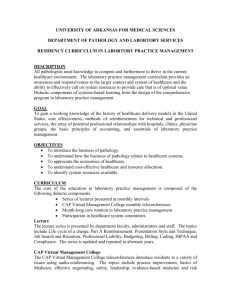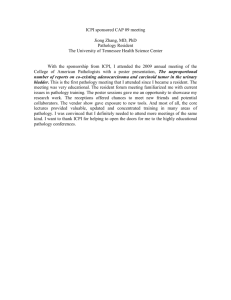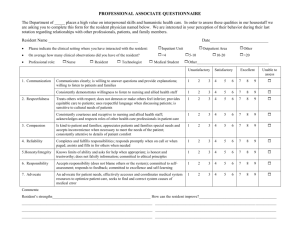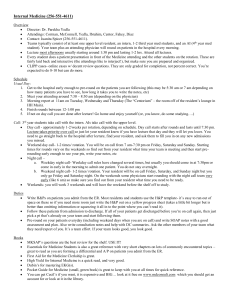NAME OF ROTATIONS: Laboratory Management and Information
advertisement
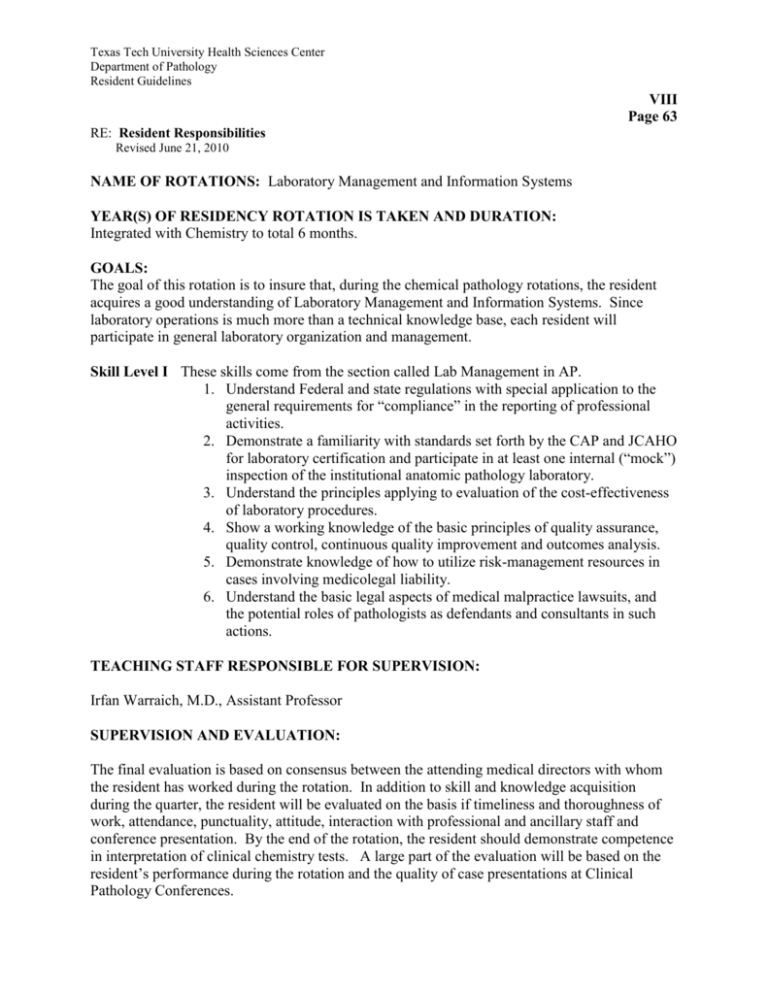
Texas Tech University Health Sciences Center Department of Pathology Resident Guidelines VIII Page 63 RE: Resident Responsibilities Revised June 21, 2010 NAME OF ROTATIONS: Laboratory Management and Information Systems YEAR(S) OF RESIDENCY ROTATION IS TAKEN AND DURATION: Integrated with Chemistry to total 6 months. GOALS: The goal of this rotation is to insure that, during the chemical pathology rotations, the resident acquires a good understanding of Laboratory Management and Information Systems. Since laboratory operations is much more than a technical knowledge base, each resident will participate in general laboratory organization and management. Skill Level I These skills come from the section called Lab Management in AP. 1. Understand Federal and state regulations with special application to the general requirements for “compliance” in the reporting of professional activities. 2. Demonstrate a familiarity with standards set forth by the CAP and JCAHO for laboratory certification and participate in at least one internal (“mock”) inspection of the institutional anatomic pathology laboratory. 3. Understand the principles applying to evaluation of the cost-effectiveness of laboratory procedures. 4. Show a working knowledge of the basic principles of quality assurance, quality control, continuous quality improvement and outcomes analysis. 5. Demonstrate knowledge of how to utilize risk-management resources in cases involving medicolegal liability. 6. Understand the basic legal aspects of medical malpractice lawsuits, and the potential roles of pathologists as defendants and consultants in such actions. TEACHING STAFF RESPONSIBLE FOR SUPERVISION: Irfan Warraich, M.D., Assistant Professor SUPERVISION AND EVALUATION: The final evaluation is based on consensus between the attending medical directors with whom the resident has worked during the rotation. In addition to skill and knowledge acquisition during the quarter, the resident will be evaluated on the basis if timeliness and thoroughness of work, attendance, punctuality, attitude, interaction with professional and ancillary staff and conference presentation. By the end of the rotation, the resident should demonstrate competence in interpretation of clinical chemistry tests. A large part of the evaluation will be based on the resident’s performance during the rotation and the quality of case presentations at Clinical Pathology Conferences.
